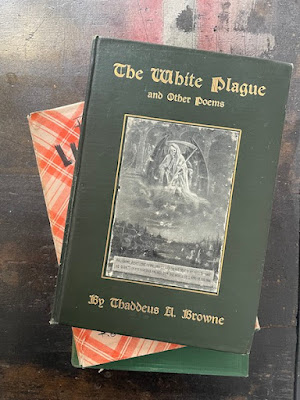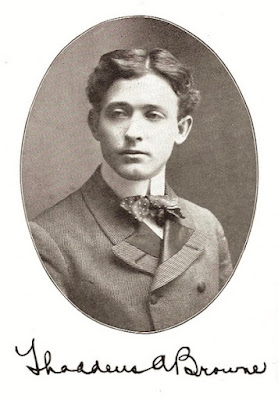I haven't given National Poetry Month the attention it deserves. The first year of the Dusty Bookcase saw James MacRae, he of William Arthur Deacon's
The Four Jameses, recognized. The following April, National Poetry Month was pretty much given over to fellow James, Cheese Poet
James McIntyre. The year after that, I produced
a chapbook and promoted an evening celebrating the first James – by which I mean MacRae (né John J MacDonald) – in beautiful St Marys, the small Ontario town he'd chosen to call home.
National Poetry Month month has received little recognition since. I aim to make amends by posting verse – one poem every three days – until the cruelest month runs its course. Some I like, some I very much dislike; all are shared for no other reason than I find them amusing, interesting and/or infuriating.
We begin with 'Snow in April' by once-celebrated, now neglected Marjorie Pickthall. It isn't one of her best, but I like it. So, now that April's here, from The Complete Poems of Marjorie Pickthall (Toronto: McClelland & Stewart, 1927):
SNOW IN APRIL
Over the boughs that the wind has shaken, Over the sands that are rippled with rain,
Over the banks where the buds awaken
Cold cloud shadows are spreading again.
All the musical world is still,
When sharp and sudden, a sparrow calls,
And down on the grass where the violets shiver,
Through the spruce on the height of the hill,
Down on the breadths of the shining river
The faint snow falls.
Last weak word of a lord that passes—
Why should the burgeoning woods be mute?
Spring is abroad in the spiring grasses
Life is awake in the robin's flute.
But high in the spruce a wind is wailing,
And the birds in silence arise and go.
Is it that winter is still too near
For the heart of the world to cast out fear,
When over the sky the rack comes sailing
And suddenly falls the snow?
Related posts:
















